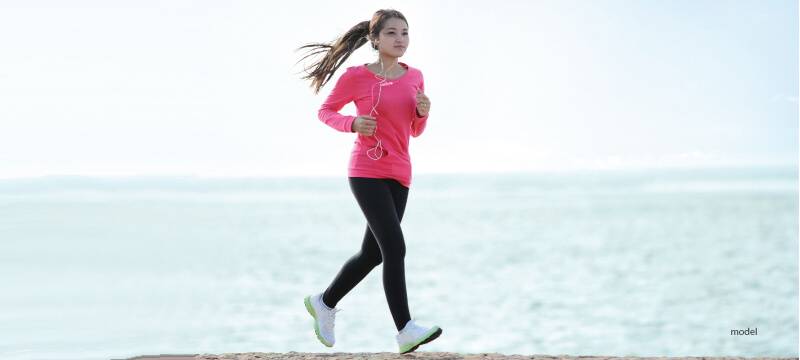How You Can Support Your Skin Health With Your Fitness Routine

Exercise is a cornerstone of a healthy lifestyle. It boosts cardiovascular health, strengthens muscles, enhances mental well-being, and helps maintain a healthy weight. However, while the benefits of regular exercise are undeniable, rigorous physical activity can also impact your skin health. This blog post will explore how exercise can both benefit and potentially harm your skin, and provide practical tips on maintaining a healthy skincare routine to minimize the risk of common dermatological conditions.
How Can Exercise Benefit Your Skin?
Improved Blood Flow
Exercise increases blood circulation, which helps nourish skin cells and keep them vital. Blood carries oxygen and nutrients to working cells throughout the body, including the skin. Improved blood flow also helps carry away waste products, including free radicals, from working cells. This process can give your skin a healthy glow and even slow the appearance of aging.
Reduced Stress
Physical activity is a powerful stress reducer. When you exercise, your body releases endorphins, which are chemicals in the brain that act as natural painkillers and mood elevators. Lower stress levels can lead to fewer stress-induced skin issues such as acne, eczema, and psoriasis. Research has shown that exercise can reduce stress and anxiety levels by up to 40%.
How Can Exercise Harm Your Skin?
While exercise has numerous benefits, it can also negatively impact your skin if not managed properly. Various factors can contribute to skin issues, and understanding these can help you mitigate them effectively.
Excessive Sweating
Exercise often leads to increased sweating, which is the body’s natural cooling mechanism. However, excessive sweating, known as hyperhidrosis, can cause and exacerbate skin conditions like eczema. Sweat can mix with bacteria and dirt on your skin, potentially clogging pores and leading to irritation or breakouts.
Common Treatments for Hyperhidrosis:
- Clinical-strength antiperspirants: These contain aluminum chloride, which helps reduce sweating.
- Botox injections: Botox can temporarily block the nerves that cause sweating, providing relief for several months at a time.
Frown Lines
Exercising outdoors without adequate sun protection or staying hydrated can accelerate the formation of frown lines and other wrinkles. UV radiation from the sun can break down collagen and elastin in the skin, leading to premature aging. Dehydration can also make your skin look dry and more prone to wrinkles.
Techniques for Treating and Preventing Frown Lines:
- Sunscreen: Use a broad-spectrum sunscreen with an SPF of 30 or higher.
- Hydration: Drink plenty of water before, during, and after your workout.
- Moisturizers and anti-aging creams: Products containing retinoids, peptides, and antioxidants can help reduce the appearance of fine lines and wrinkles.
- Botox injections: Botox reduces the appearance of frown lines by temporarily paralyzing the underlying muscles.
Acne
Rigorous exercise can increase the risk of acne, particularly if you do not follow a comprehensive skincare routine. Sweat can mix with oils and dead skin cells, clogging pores and leading to breakouts. Additionally, wearing tight clothing or using dirty gym equipment can exacerbate the problem.
Common Treatments for Acne:
- Topical treatments: Over-the-counter products containing benzoyl peroxide, salicylic acid, or alpha hydroxy acids.
- Prescription medications: Dermatologists may prescribe stronger topical treatments or oral medications, such as antibiotics or isotretinoin, for severe cases.
- Professional treatments: Procedures like chemical peels, laser therapy, and extraction can help manage and reduce acne.
Protecting Your Skin During Exercise
To minimize the negative impacts of exercise on your skin, it is essential to incorporate some best practices into your fitness routine.
Wash Off Makeup Before Working Out
Exercising with makeup on can clog pores and lead to breakouts, especially if you perspire heavily. Washing your face before your workout can help keep your pores clear and reduce the risk of acne and irritation.
Prioritize Sun Protection
Excessive sun exposure can damage your skin, contributing to the formation of frown lines and increasing the risk of skin cancer. Protect your skin by applying a pore-friendly, non-comedogenic sunscreen before exercising outdoors. Look for sunscreens labeled as “broad-spectrum,” which protect against both UVA and UVB rays.
Choose Your Gym Clothes Carefully
Wearing the right clothing can significantly impact your skin health during exercise. Opt for moisture-wicking fabrics that draw sweat away from your skin, helping to keep you dry and prevent clogged pores. Ensure your clothes fit comfortably and do not rub against your skin to avoid irritation and chafing.
Practice Good Hygiene
Good hygiene practices are crucial for preventing skin infections and irritation. Here are some tips to follow:
- Avoid contact with dirty equipment and towels: Always use clean towels and avoid touching your face with your hands during workouts.
- Disinfect shared equipment: Wipe down gym equipment before and after use with disinfectant wipes.
- Shower after exercising: Take a shower as soon as possible after your workout to wash away sweat, bacteria, and dirt.
By being mindful of how exercise can impact your skin and taking steps to protect it, you can enjoy the numerous health benefits of physical activity without compromising your skin health. If you experience persistent dermatological symptoms, whether related to exercise or not, seek professional care to ensure the best possible outcome.
